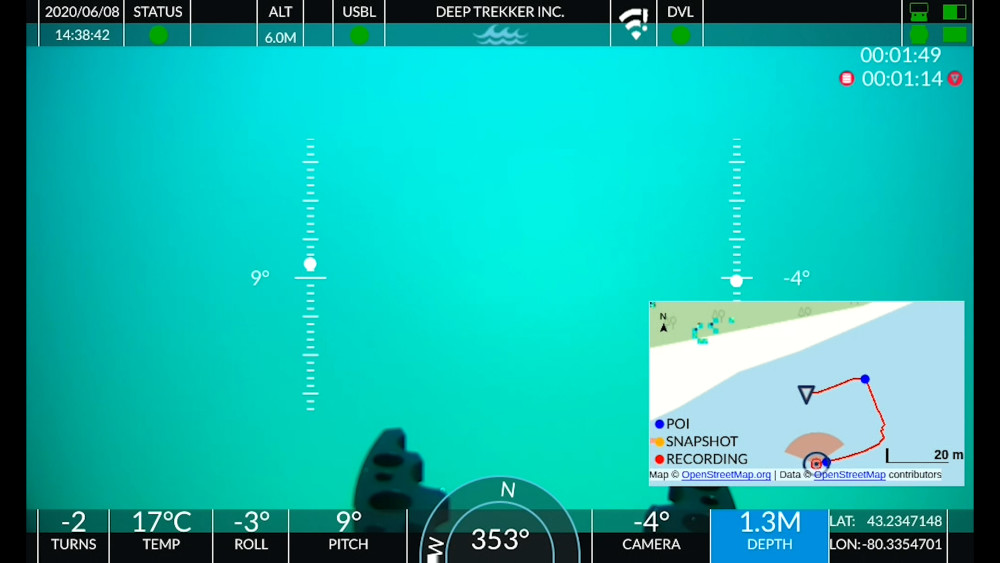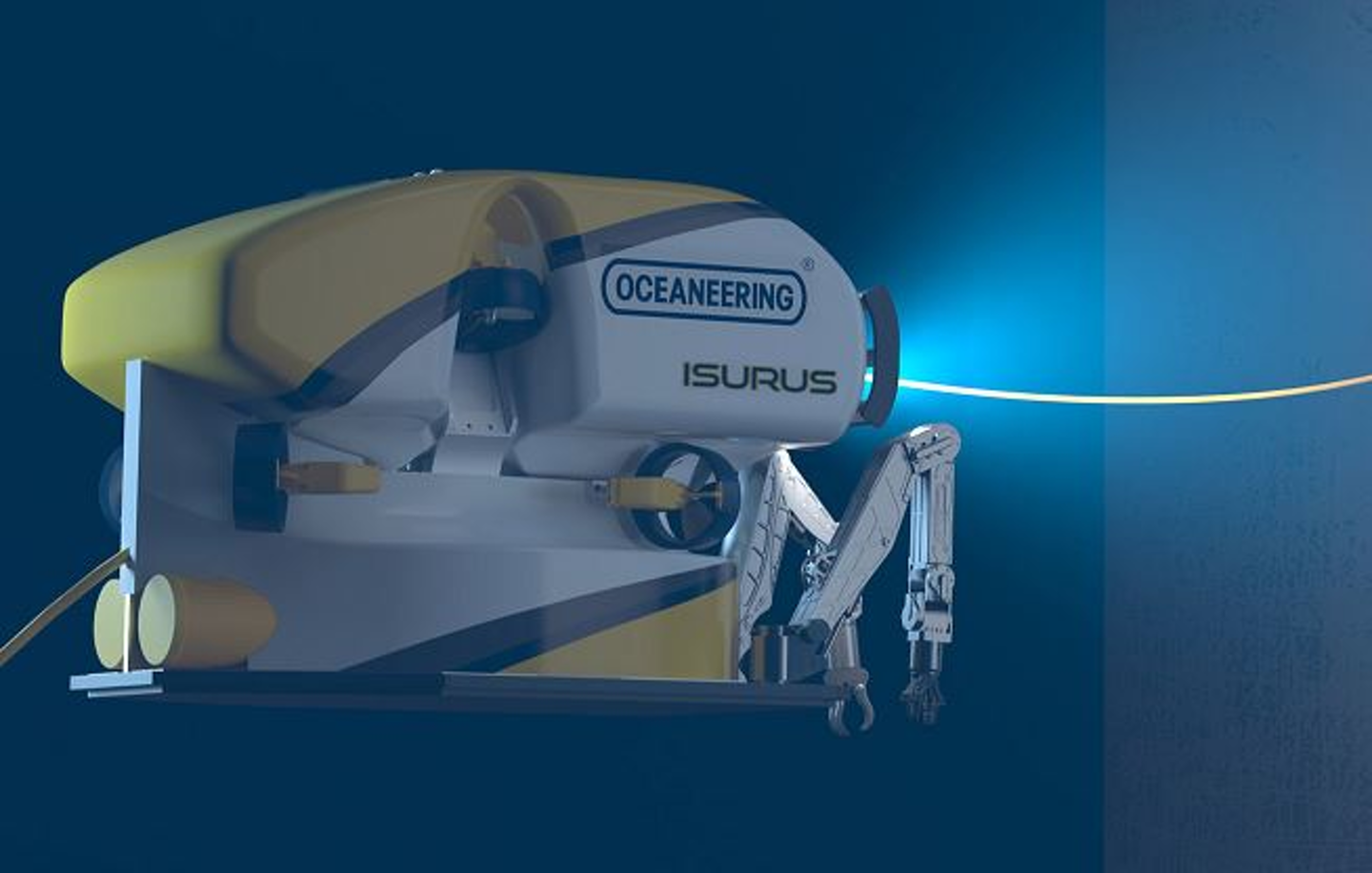Home › Forums › ROV › ROV Industry Vocational Training › HNC Electrical Engineering – Distance Learning
- This topic has 13 replies, 6 voices, and was last updated 14 years, 10 months ago by
Ray Shields.
-
AuthorPosts
-
June 25, 2009 at 1:24 pm #2629
JOCKY
ParticipantIm currently a Pilot Tech working in the Industry for over 2 years getting regular work through my company.
Im looking at furthering my Education to improve my abilities as a Pilot Tech by either doing a sparkie course or ideally starting up a HNC studying online as i have already a BTEC Electrical ENgineering which i know means shit in this industry.
Have anybody got some good relevant information on courses available to help further my abilities as a ROV lad. Obviously im learning shed loads offshore but want to learn even more.
Cheers
June 25, 2009 at 6:15 pm #23900Ray Shields
ParticipantGoogle details on COLU, or search the forum as this has been mentioned in the past. Through COLU and a local collage (or not even local) you can do HNCs distance learning meaning you can do teh work while you are away as well as when you are at home.
June 25, 2009 at 6:30 pm #23901James McLauchlan
ParticipantA quick Google on: HNC electrical course UK
Produced http://www.colu.co.uk/ (along with a number of other hits of course).
Higher National Certificate (HNC) in Engineering
HNCs are Higher National Certificates in particular disciplines, in this case, validated by Edexcel and the University of Teesside.COLU offers 4 HNC courses by distance learning:
Electrical & Electronic Engineering
Mechanical Engineering
Instrumentation & Control Engineering
Chemical EngineeringTo download a full description, click here (216k .pdf)
General enquiries:
Tel: +44 (0)1642 342740Fax: +44 (0)1642 342743
enquiries@colu.co.ukAddress:
COLU
School of Science & Technology
University of Teesside
Orion Building
Middlesbrough
Tees Valley
TS1 3BAJune 27, 2009 at 9:04 am #23902JOCKY
ParticipantThanks for the prompt responses. Will look into it and will add on the information and anything that might help other ROV lads looking to do something similar.
Cheers
June 27, 2009 at 9:40 am #23903James McLauchlan
ParticipantAdded to FAQ’s: Here
April 28, 2010 at 8:07 pm #23904gr8
ParticipantJOCKY, have you started that distance learning course?
I would like to improve my knowlegde and also thinking to do it in that way. Anybody is doing or did the course by distance learning?I have found also hydraulic course (distance learning) but this is only:
Introduction to Hydraulic Circuits and Components (more here: http://www.bath.ac.uk/ptmc/courses/fp1dl.html)April 29, 2010 at 3:46 am #23905timebandit
ParticipantJocky
I have to disagree with you,
the BTEC Electrical/Electronic engineering OND or ONC is an excellent course and should give you more than enough knowledge to fault find on an Rov.
Personally I would recommend the Hydraulics course and study all the manuals you come across in you work.May 1, 2010 at 1:23 pm #23906gr8
ParticipantNobody did (or doing at the moment) that course?
May 1, 2010 at 2:46 pm #23907Jason Graham
ParticipantGood afternoon all
I’m in the process of the hnc electronics course now, with colu @ Teesside uni, anything you need to know, I’ll see what i can do for you.May 1, 2010 at 3:31 pm #23908gr8
ParticipantHi Paddy Graham
Thanks for reply.
I would like to know something before I enter that course…The information are written in simple language or strong technical?
Is it started from "zero" or you have to have some knowledge of electronics?
Every contacts and sending info is via e-mails? or maybe also by other things (for example post or phone calls) ?
They have written that there is not any exams after that course… but what about that final assesments for each module? How does it look?
What about the practical work which is required in some modules?
And of course… what about the price?Thanks in advance
EDIT:
I have found the costs…Higher National Certificate (HNC) in Engineering Order code Description Price
292 6 Analytical instrumentation £180
281 0 Analytical methods for engineers £180
306 X Application of pneumatics & hydraulics £180
282 9 Business management techniques £180
307 8 Combinational & sequential logic £180
309 4 Control systems & automation £180
310 8 Digital & analogue devices & circuits £180
284 5 Electrical & electronic principles £180
311 6 Electrical power £180
331 0 Electrical supply & distribution systems £180
332 9 Electrical system protection £180
312 4 Electricity & lighting £180
313 2 Electronics £180
283 7 Engineering design £180
279 9 Engineering science £180
314 0 Engineering thermodynamics £180
287 X Fluid mechanics £180
315 9 Heat transfer & combustion £180
288 8 Heat transfer science £180
316 7 Heavy current applications £180
286 1 Instrumentation & control principles £180
286 1 Instrumentation & control principles £180
317 5 Manufacturing process £180
289 6 Mass & energy balance £180
290 X Mass transfer operations £180
291 8 Materials engineering £180
285 3 Mechanical principles £180
318 3 Mechatronics systems principles £180
319 1 Microprocessor systems £180
320 5 Operational amplifiers £180
321 3 Plant & process control £180
322 1 Plant & process principles £180
323 X Plant maintenance & management £180
324 8 Plant technology £180
325 6 Power electronics £180
326 4 Process control £180
327 2 Programmable logic controllers £180
280 2 Project £180
330 2 Safety engineering £180
328 0 Software £180
329 9 Utilisation of electrical energy £180I understand that not all of them are for the Electrical and Electronic Engineering course?
May 1, 2010 at 4:08 pm #23909Jason Graham
Participantyou have 4 core modules and then any 5 sub modules, you may have to do a bridging module first, all range from £80 to £200 i know that looks like alot , but look at what you can get from the course, and its the same 4 core modules for 3 or 4 hnc’s so you do thr first hnc and then just the sub modules as and when to get the rest, I bet there are times when your off shore your that board that you count seagulls and rivets down the side of a boat, so crack on with an hnc, your in a better position than most to achive it and what have you got to loose a couple of quid.
its simple to learn even easier if you have got web access and you got electronic engineers onboard there.
you can chat with your instructor via snail mail, e mail, phone (you get his home no but please dont loose track time and call him in the wee hours of the morning ) and web cam.you have self assessment tests that he marks and from that he can tell your weak and strong points.
your practical work is sent off by post,
if you are required to do a test, and if you do what it says on the tin you wont have any problems.
May 1, 2010 at 4:20 pm #23910gr8
ParticipantMany thanks for your reply
I have to write to them, cause I read that…
Normal entry requirements are Ordinary National Certificate (ONC) or equivalent. However, other qualifications and experience are taken into consideration. A Mathematics ‘bridging’ module (certificated City & Guilds at Level 3) is available which prepares you for HNC entry.
… so there is maybe a chance to not doing the bridging module.
What about the future employers? How do they look for a person who get HNC by distance learning? (btw. is it written on the cert. that you get it by distance learning?)
Cheers
May 1, 2010 at 4:40 pm #23911Jason Graham
ParticipantI would like to think that most employers would welcome hnc by distant learning,
it proves you want to achieve more, you can do it whilst holding down a full time job and a family and believe me that aint easy,May 2, 2010 at 2:37 pm #23912Ray Shields
ParticipantAs far as employers are concerned, the piece of paper you get at the end will say you have an HNC, it will not say you got it doing distance learning etc.
So it will make no difference. An HNC is an HNC.
-
AuthorPosts
- You must be logged in to reply to this topic.








